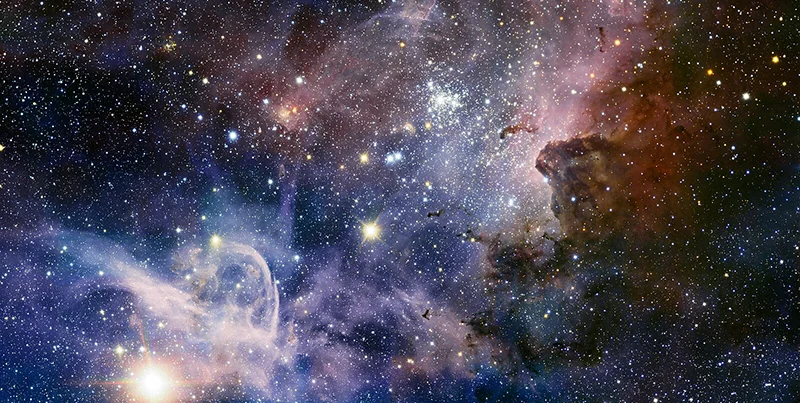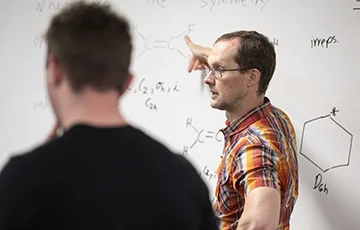Astrochemistry
This area of research involves the prediction and identification of fundamental molecules that exist in space.
Studying How Chemicals and Molecules Form and Behave in Space
Astrochemistry is the fingerprint of astrophysics. The molecules present in a given astronomical region bely the underlying astrophysics. The detection of such molecules depends upon radio and infrared telescopes, but observations must be paired with reference data. The work at UM in astrochemistry aims to provide the spectroscopic and chemical reaction data needed to determine the presence of polycyclic aromatic hydrocarbons (PAHs), inorganic oxides, prebiotic molecules, and other seemingly bizarre molecules found in space.

Research Projects
-

Professor Ryan Fortenberry
Astrochemically, the Fortenberry Group works to provide the chemical rationale and spectroscopic data for the detection of new molecules in space. The universe is a vast place, and the physical conditions of the myriad astrophysical environments are varied from those of the Earth. Hence, terrestrial chemistry is but a small subset of all possible chemical conditions where novel products can be generated with unknown properties. Additionally, the only way to detect such molecules is through remote sensing meaning that spectroscopic data for such molecules must be on hand in order to compare with observational data. However, experimental studies of molecular species in these environments can be exceptionally difficult. Computation does not suffer from these same constraints. Consequently, theoretical chemistry is uniquely suited to answer questions about the nature of molecules in space.
Fortenberry Lab
Astrochemistry Faculty
Ryan Fortenberry
- Associate Professor of Chemistry and Biochemistry
